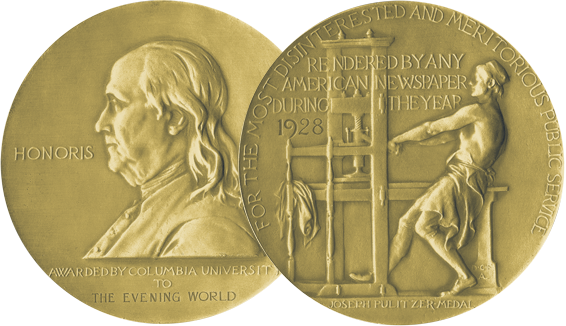Research Pulitzer and record your findings on your Happy Birthday Missouri sheet.
Joseph Pulitzer suffered from poor health and bad eyesight most of his life, but his natural curiosity and eagerness to learn helped him succeed as a laborer, legislator, and newspaperman. How would describe Pulitzer's attitude as depicted in the video here? Make a quick t-chart to show the things you would freely emulate and the other things you would like to avoid.
| |
Yellow Journalism/Fake News
To sell more papers, both Pulitzer and Hearst began to write shocking stories, gory headlines, and use lots of photographs and cartoons to attract readers—a journalism style now known as “yellow journalism.” The start of the Spanish-American War in 1898 intensified the rivalry. After several years of trying to outdo Hearst, Pulitzer finally realized his folly and again tried to report only the facts.
Is this what fake news websites and certain members of the media try to do when they engage in yellow journalism? Why might people want to spread fake news? What is the effect of fake news on the populace?
How can you tell the difference between fake and real news reports?
| | |
The PrizePulitzer’s gift of two million dollars in 1903 helped create the Columbia University School of Journalism, which opened September 30, 1912. Today, the school oversees the Pulitzer Prize, an award given to those who excel in journalism, literature, and music. The prize began with a donation from Pulitzer and was first awarded in 1917. |








































